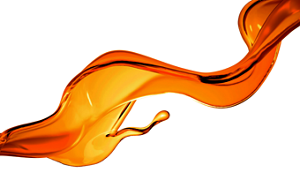Bioprocess Agents, Providing the best solution for bio-chemicals
The process of fermentation leads to success.
Kao has conducted a great deal of research and development on the development of proprietary enzymes and fermentation production, and has applied the results to its own products. In recent years, as the trend away from petrochemicals has accelerated, biochemicals produced by fermentation* have been attracting renewed attention. However at the same time, various issues have arisen. By providing bio process agents that leverage Kao's wealth of knowledge and technology, we offer optimal solutions to your concerns and issues in fermentation production and deliver added value such as improved yields and quality.
*Typical bio-chemicals: bioethanol, biodegradable plastics (PLA/PHA), etc.


Increase yield and production per batch.

Reduce defective products due to bacterial contamination

Simplify the processing of bio-chemical products

Change additives to sustainable raw materials
Kao's bio process agents offer the solution to these concerns
Kao will offer solutions to improve productivity and quality in each process of bioethanol and biodegradable plastics (PLA/PHA).
Agents and solutions proposed by Kao
production process
processing process
Kao provides various solutions based on our knowledge of fermentation process control and resin modifiers that we have cultivated over the years.
Bactericide
QUARTAMINTM series
Bacterial growth (contamination) is the biggest issue in the fermentation process, and can lead to the production interruption and product disposal. Kao proposes a "safe and secure to use, free from regulated substances" bactericide that has high bactericidal properties and low corrosiveness to the kettle.
High bactericidal activity
We have confirmed high bactericidal activity at low dosage compared to common bactericide (benzalkonium chloride, BKC).
(1) Test solution [volume] 1 mL
(2) Bacillus subtilis 168 [Initial bacterial count] 5.7 × 105 CFU/mL
(3) Environment [medium] LB [temperature] 25℃
(4) Contact [time] 5 min [agitation] 150 rpm
Low corrosiveness
Our products are not included chloride (chlorine), which is a cause of corrosion in kettles and lines, leading to a reduction in equipment repair costs.
Test condition: 50wt% aqueous solution of active ingredient (test solution), SUS304 (test piece)
Test method: Observe the appearance of the test piece after immersing it in the test solution at 40℃ for 1 day
Defoamer
FERMOLTM series
Foaming in fermentation production is directly connected to production efficiency, so its control is extremely important. In addition to being both fast-acting and long-lasting, defoamers must be required easy wastewater treatment. Kao can propose a defoaming agent with a low wastewater load and excellent defoaming effects.
High defoaming performance
Our products have a high foam reduction effect of approximately 50-80% compared to commercial products, and has excellent defoaming persistence after addition. It also demonstrates high defoaming performance in oil.
Test conditions: 20% molasses, 1g dry yeast, air stone (for aquatic organisms)
Test method: Blowing air at 500 ml/min, measuring foam (foam height/initial liquid volume) after 10 min at 30℃
Enzyme
KAO LUNASETM series
In order to recover the target substance obtained by fermentation production, there is a bacterial removal process using enzymes and surfactants. Kao proposes an enzyme (protease) that is highly resistant to surfactants and has excellent proteolysis, based on the knowledge gained from our detergent development technology. In addition to proteases, we also have our own library of various enzyme species.
Stability for surfactants
Proteolytic activity can be maintained even in the presence of various surfactants, which will lead to partial shortening of the purification process and production efficiency improvement.
Test condition: 2% surfactant, Tris-HCl buffer (pH 8)
Test method: Residual activity measured after storage at 40℃ for 3 days
Residual activity %: calculated based on the activity of the untreated sample
Thermostability
Proteolytic activity can be maintained even in the high temperature range of 50-70℃, which will lead to partial shortening of the purification process and production efficiency improvement.
Test condition: 0.2% SDS, NaHCO3-Na2CO3 buffer (pH 10)
Test method: Residual activity was measured after heat treatment of solution at 30-70℃ for 15 min
Residual activity %: calculated based on the activity of the untreated sample
By providing fermentation process chemicals that leverage Kao's wealth of knowledge and technologies, we offer optimal solutions to your problems and challenges in fermentation residence, and deliver added value such as improved yield and quality. Please feel free to contact us by using the form below.
Bio-Conversion
Enabling the use of non-edible biomass
Saccharification enzyme CRESCENTIS™

Bio-Chemical Products
Bioaromatic Compound Production Technology
Bio Gallic Acid GA-100 BIO


